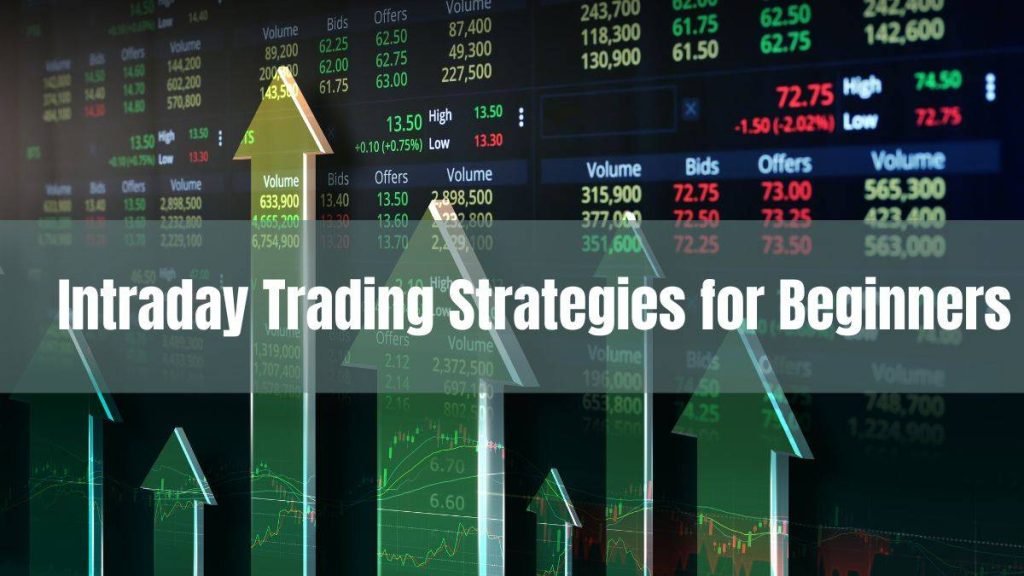Intraday trading, also referred to as day trading, entails the buying and selling of financial instruments on the same trading day. It is a fast-paced trading approach that requires skill, discipline, and an understanding of market trends.
What Is Intraday Trading?
Intraday trading involves capitalizing on short-term price movements in the market. Traders using technical analysis and market indicators and employing momentum strategies make quick decisions. The success of intraday trading relies on the market knowledge, risk management skills, and timely execution of trades.
Reasons Why You Should Trade Intraday?
1. Potential for Short-Term Gains
Intraday traders can benefit from price fluctuations that occur during the trading day.
2. Leverage Opportunities
Many brokers allow intraday buying on margin, which means traders can control a large position with a smaller amount of capital.
3. No Overnight Exposure
Since trades are squared off before market closure, traders avoid risks arising from overnight price movements.
Top Intraday Trading Strategies
1. A trend-following strategy aims at trading along the market trend where the trader identifies trends with the help of moving averages and trend lines, confirming them eventually with momentum indicators like MACD (Moving Average Convergence Divergence).
2. Breakout trading is where a trader opens a position when a price surpasses important support or resistance levels. The traders look forward to confirming breakout moves from collaborative increased volume and positioning accordingly. The importance of putting stop-loss orders arises in case a false breakout occurs.
3. Scalping is a very intensive approach where a trader involves himself in numerous small trades in cash markets to obtain profit from minute movements of prices.
4. Momentum Trading: As for the momentum traders, it looks at high stocks that are moving on high volume with aggressive volatility. They use technical indicators like Relative Strength Index (RSI) and Bollinger Bands.
5. Reversal Trading strategy would outline stocks that currently sit at an extreme high or low and are probably about to reverse in their trend. The traders depend upon reversal indicators like RSI divergence, candlestick patterns, and Fibonacci retracement levels to make predictions of reversals.
Risk Management in Intraday Trading
Set Stop-Loss Orders: Define a limit for loss beforehand in case of a trade to protect your money.
Proper Position Sizing: Never over-trade in a single stock so that you can minimize risk.
Avoid Overtrading: Stick to your trading plan and avoid entering trades that don’t qualify.
Control Your Emotions: Decisions should be made logically and based on analytical concepts, not emotions.
Tax on Intraday Trading in India
Intraday trading keeps taxes in consideration. The tax on intraday trading in India falls under speculative business income. Here are the important points from the taxation angle:
- Income Tax: Profit arising from intraday trading is treated as speculative business income and gets taxed according to the applicable income tax slab.
- GST on Brokerage: Traders pay GST on brokerage fees charged by the stockbroker.
- Securities Transaction Tax (STT): On intraday trade, STT is levied but at a lesser rate compared to STT on delivery trades.
- Filing Requirements: Since the income from intraday trading is treated as business income, books of accounts need to be maintained by the traders, who might also have to file their tax returns under ITR-3.
Why is it important to open a Demat account for Intraday Trading?
1. Smooth Transaction Process
The Demat account ensures smooth electronic transactions, which is an added advantage even for the intraday trader.
2. Regulatory Compliance
The trading account, in turn, is linked to a demat account opening and is necessary for stock market transactions.
3. Margin Trading Facilities
Most brokers provide additional leverage to traders via Demat accounts.
4. Stock Holding Flexibility
Should a trader decide to convert the intraday position to delivery trades, a Demat account would come in handy.
Choosing the Right Broker for Intraday Trading
Cost-Effective Brokerage Fees: Since a trader will be executing multiple trades throughout the day, he should opt for a broker that charges the lowest brokerage possible per transaction to profit most.
1. Advanced Trading Platforms
The selected broker should facilitate traders with a speedy and reliable trading interface for effective and quick order execution.
2. Margin Business
Choose brokers that provide tempting margins for trade.
3. Customer Care
Essentially, prompt requisite support to accept requests in case of any problems arising in trading.
Final Thoughts
Intraday trading can offer potential opportunities for traders seeking short-term market participation, but it requires strategy, sound risk management, and an understanding of related aspects like taxation and account setup. Opening a demat account is one of the foundational steps for entering the market.


